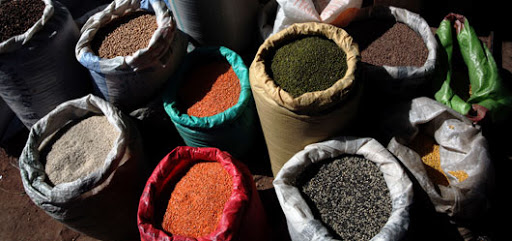Global agricultural progress since the early days of man’s civilisation could not have been without seeds of new crops and crop varieties brought under cultivation. The world recognises the importance of good quality seeds in contributing to increased agricultural productivity and production, which resulted to all countries ensuring the continuous and wide use of high quality seeds. Across the world, the uptake of seeds and other quality planting material depends on policies and market conditions including demand, demand patterns, psychology of farmers, production cost, margins and even competition.
Beyond the policies and markets, an effective seed supply system relies on research, extension and input supply services. Experts agree that the neglect of any one component in the seed development chain affects the entire seed supply system. Where new varieties are developed by agricultural research institutions, the varieties must have the attributes required by farmers. In the instances where the distribution channels do have suitable varieties available, they must be able to reach smallholder farmers in a timely manner, at an affordable price. Even when all these conditions are satisfactory, distribution channels for complementary inputs must be effective and extension services, as well as agricultural finance services, must provide the necessary support to farmers.
In Nigeria, there is a relatively weak demand for improved seeds due to poor seed culture among the farmers. Poor seed culture is also informed by a number of factors like the availability of cheap low-grade variety, the inability of farmers to afford complementary inputs. The Nigerian agricultural sector’s combined demand volume for all certified seeds is estimated to be around 20 million kilogrammes or 20,000 metric tons (mt) per annum. About 50 per cent of the entire demand is maize seeds, another 30 per cent rice and all other seeds including vegetables make up the outstanding 20 per cent. This estimate of the potential seed market is based on actual cultivated land and active farmers that used certified seeds, but if the uncultivated land and non-certified seeds users are considered, the potential can be in the upwards 100,000mt per annum. The currently certified seeds demand is estimated to be worth about N4 billion per annum with an upside potential of up to N40 billion per annum.
The demand pattern for seeds has seasonal dynamics. Foundation seeds planted and bred in a previous year are treated and processed into certified seed in the succeeding year then sold. Sales are quite often done as processing is taking place because farmers mostly only buy when they need to start planting. Usually, the most active sales period is between April and late June, which is usually the early part of the wet planting season for maize and rice. However, vegetables seeds sales are mostly in August or September. Beyond the wet season, many farmers also engage in dry season farming. It can be said that about 70 per cent of the seeds used by farmers during the dry season farming are just taken out of the produce of what was cultivated during the wet season. Only about 30 per cent of the seeds used during the dry season are certified seeds from seed companies.
The smallholder farmers make up the majority of all agricultural producers in Nigeria, therefore, a considerable portion of the demand in the agricultural inputs market. They mostly lack financial strength but are, however, a permanent feature of the market. They are also mostly uneducated and do not have any credit scores or formal financial access. This makes it hard for agro-dealers and input manufacturers to structure transactions on credit with them.
On the other hand, the currency depreciation of the Naira resulting from the economic downturn has made imported inputs and machinery components used in seed production more expensive than they used to be. Consequently, the prices of farm input have become more expensive and unaffordable to the smallholder farmers that are already financially weak.
Despite the rise in production costs and market prices, seed production remains a slim profit margin business. This has also resulted in many unethical practices in the industry where some seed producers simply treat grains – which are cheaper – and sell them off in place of certified seeds. This unethical practice is not only impairing yield but is also affecting the reputation of the certified seeds industry.
It is expected that the gradual penetration strategy being adopted by global multinational seed companies like Monsanto and DuPont – is going to significantly alter the balance of power in the market in the near future. The main competitors and market leaders in Nigeria will certainly be affected by the arrival of these global seeds heavyweights with their strong financial backing, global reach and advanced technology, they are set to likely take the seed production business in Nigeria by storm.
It is essential for us to eliminate factors affecting the development of a seed supply sector. Whether from a business or policy point of view, linkages in seed supply systems must be considered when defining appropriate seed strategies, from the market to the socio-economic circumstances of the farmers. It is equally important to be aware of potential negative repercussions to the seed supply sector if changes in other policies affect services offered to farmers, which is so prone to happening in the Nigerian agricultural sector.

 Join Daily Trust WhatsApp Community For Quick Access To News and Happenings Around You.
Join Daily Trust WhatsApp Community For Quick Access To News and Happenings Around You.


